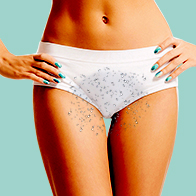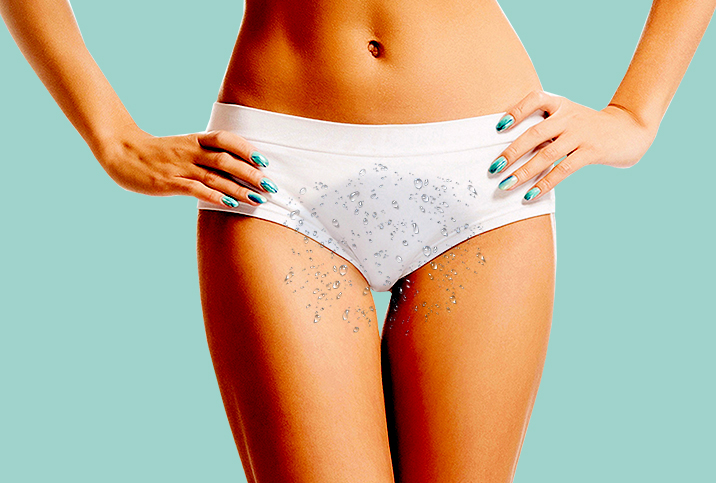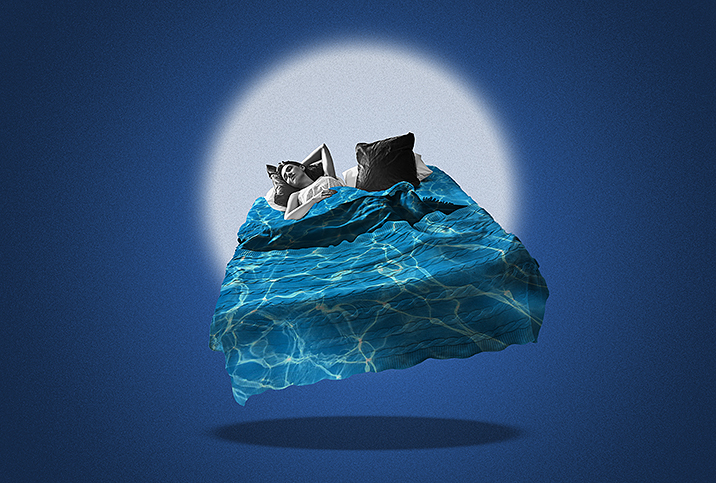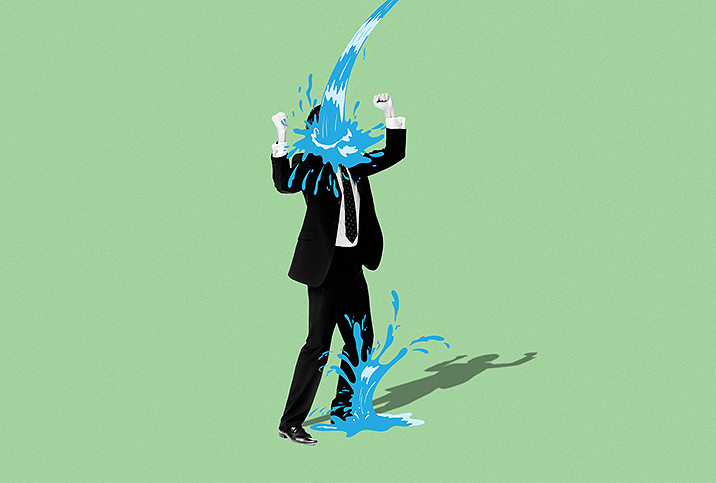There's No Such Thing as Being 'Too Wet' for Sex
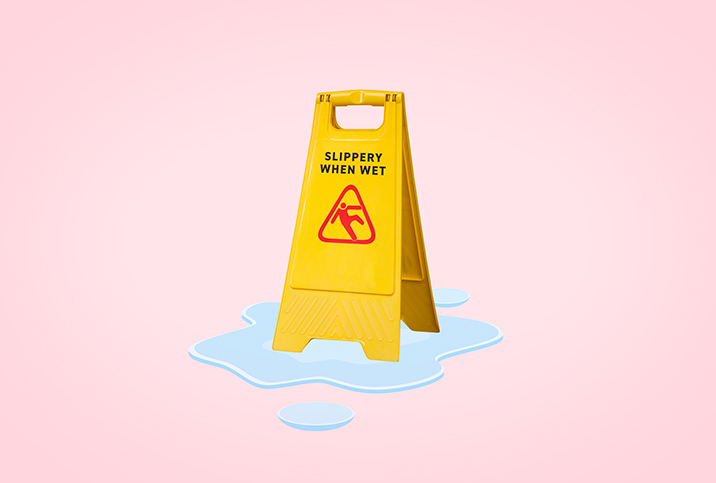
For women and vulva-having people, one of the most common and relatable sexual hang-ups is wetness. Yep, thanks to stigma, shame and a complete lack of honest discourse about how vaginas work, many people worry about how wet they get during sex. While the fear of not getting wet "enough" is a big one, the lesser acknowledged (but just as legitimate) concern is being "too wet."
What does "too wet" mean? Why do we get wet in the first place? And how do we overcome this shame about what it is? Spoiler alert: It's a totally natural and necessary bodily function.
Why vaginas get wet during sex
To tackle any misconceptions and shame surrounding wetness, we need to understand why (and how) it happens. Vaginal lubrication occurs to "enable the movements of sex organs to provide pleasure without discomfort," explained Leila Frodsham, consultant gynecologist for the Royal College of Obstetricians and Gynaecologists (RCOG).
Frodsham said that vaginal secretions are made up of discarded cells from the genital tract, fluid from the cervical canal and vaginal walls and mucus. "Arousal fluid releases from the vaginal wall and Bartholin's gland located at each side of the vaginal opening, allowing the vagina to become wet," she explained.
When it comes to the amount of wetness a vagina produces, there's no universal normal. "No one should feel embarrassed about having differing levels of lubrication as everybody is different," she said.
We only need to know what's normal for us, and Frodsham said our normal can change throughout our lives due to all sorts of factors, including menopause, breastfeeding and certain medications (like antidepressants and antihistamines).
'My partner wouldn't go down on me because I was 'too wet''
For 23-year-old Natasha from London, U.K., her first experience of worrying about being "too wet" occurred during masturbation.
"Because I got so wet, I didn't want to 'leave evidence' of masturbating due to being young and the act being at odds with my mum's culture," she said. "I switched to masturbating in the shower instead."
When she began having sex, her first two partners thought it was great and took it as a sign of their sexual prowess.
"It clearly stroked their ego," she said. "But my third partner was a bit grossed out by it and wouldn't go down on me because I was 'too wet.' He also said it made it too slippery for him when we were having [penetrative] sex."
Natasha said these comments made her feel insecure and provoked her into questioning whether there was something wrong with her.
"I wasn't exactly secure with sex or my body back then," Natasha said. "As I learned more about sex education and learned how I should be treated by sexual partners, I've been less tolerant of disrespect and judgment about my wetness. Being wet is a good thing because it reduces friction and harm to both parties."
'I've slept with plenty girls, plenty guys who love this WAP'
Millicent had a similar experience when hooking up with a man after a date. The 26-year-old woman from Milton Keynes, U.K., said, "So he's in me in missionary and I'm gushing, and he's just looking in between his thighs. He stops, runs, gets a towel and flips me over into doggy.
I start to squirt and he's like, 'Woah, what? Are you done with that?'"
"Within five seconds he's stripping the bed—not giving me a chance to even put my spanx back on."
He drove Millicent home, and the next day told her he didn't want to see her again because "the sex was awful," and she was too wet.
"As if that's a problem!" she said. "The whole thing left me a bit traumatized as he completely desexualised me and mortified me. But then I thought I slept with plenty girls, plenty guys who love this WAP, so the bounce back was real."
So, why do so many of us worry about being too wet, even though we know wetness (natural or otherwise) is necessary for comfortable, pleasurable sex?
"Our subjective experience surrounding being 'too wet' or 'not wet enough' tends to coincide with narratives surrounding the misunderstanding of women and pleasure," said Aoife Drury, a Dublin-based psychosexual and relationship therapist. "Sex education barely touches upon sexual pleasure or the clitoris, let alone going into depth surrounding self-lubrication."
Drury said the (mostly cis and heteronormative) messages we receive surrounding pleasure "tend to negate the real-life experience; that our desire and arousal are unique and individual, and so are our bodily responses!"
How to stop feeling ashamed of how wet you get
Step 1: Be Kind to Yourself
"Compassion is absolutely key," Drury said. "Be mindful of language and phrases like 'too' or 'should.'" These will only perpetuate feelings of shame.
Step 2: Reflect
"Ask yourself questions surrounding how you received these messages, who and where they originated from, and if it was a reliable source," she added. "Often shaming sexual messages aren't coming from a good quality resource."
Step 3: Accept Your Body
"Getting more attuned with your body and your genitals is such a powerful tool in helping to ease shame," she added. "Body acceptance, and dare I say even body love, can greatly have an input on your wetness."
And remember...
There is one mainstream message about wetness, which is wrong and harmful, and that's arousal non-concordance (when you're not turned on but get wet, or are turned on but don't get wet).
"Wetness does not necessarily equate to desire," Drury explained. "Self-lubrication can be a reflexive response, it is an adaptive physiological response in an attempt to prevent injuries. Wetness should not be an indicator of consent. Instead, it should be a lovely, enthusiastic verbal one!"
As a woman or vulva-having person, learning to accept—and love—your body in all its weirdness and wonderfulness can be a tough ride. For anyone who has ever worried they are "too wet," all that matters is what's normal for you.







